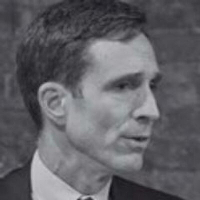|
by R. R. Reno The Public Square The majority opinion in Obergefell, written by Justice Kennedy, opens with a grand claim about the nature of freedom: "The Constitution promises liberty to all within its reach, a liberty that includes certain specific rights that allow persons, within a lawful realm, to define and express their identity." From this premise the decision follows. Add a truism of our age, which is that homosexual desires constitute an "identity," and the syllogism is complete. The Constitution's promise of liberty requires us to redefine marriage to allow men to marry men and women to marry women so that they can express their "identity." In this issue, Michael Stokes Paulsen analyzes Kennedy's legal reasoning, such as it is. But I want to stick to his claim about liberty's relation to identity. For this claim expresses a false and dishonest view. On the one hand, Kennedy suggests that my identity is more than my will or free choice. It's essential to me, and a just society provides the freedom to live in accord with my essential identity. Taken a certain way, that's correct. I have an identity as a rational animal, and genuine freedom must include the liberty to make and consider arguments. Our Constitutional rights of free speech and freedom of the press serve to promote that kind of freedom. I'm also a social animal, as well as a religious one. The constitutional rights of freedom of association and religion honor those aspects of my identity. Yet in Kennedy's formulation, identity is not something so fixed and stable as human nature. I can "define" my identity. In that sense, identity is not something freedom honors. It's a covert word for freedom itself. This makes Kennedy's formulation an empty tautology: The promise of liberty is the right to liberty. Freedom means living in accord with freedom. This incoherence is an instance of the dishonesty widespread in cultural liberalism today. For example, we are told that homosexuality is an inborn trait, an essential part of a person's makeup. At the same time, identity is plastic and open-ended, something to be discovered, even invented. LGBTQ today. Who knows what tomorrow? We're told that individuals must be free to construct their own identities. And so liberals have it both ways. If we call homosexual acts immoral, we're failing to respect something essential about gay people. If we presume to define what is essential about anyone, including gay people, we're encroaching on their freedom to define their identities. Identity is essential — and arbitrary. It's the foundation for freedom — and the product of free choices. Heads, they win; tails, we lose. And so it goes. We've all experienced the almost invincible loyalties of modern liberals, especially in the cultural matters that now preoccupy them. Many know that the identity politics they acquiesce to, and even at times endorse, is illiberal. Yet they are unable to renounce them. Some recognize the brutality of abortion — but they cannot turn against our abortion regime. Most suspect that being male and female matters — but they are unable to stand against the sexual politics that say otherwise. I'm often tempted to amplify my critiques of liberalism's contradictions. For example, I've argued a number of times in these pages that promoting a view of identity as self-invention accords important advantages to the "One Percent." It allows our technocratic ruling class to compliment themselves as morally progressive, with the added benefit of providing a therapeutic moral vocabulary with which to denounce populist challenges to their power. "Mrs. Johnson, I'm afraid those sorts of views can be very hurtful." But it doesn't convince, at least not very often. To point out error and falsehood can be important. It often causes those with whom we disagree to hesitate. We can embarass and fluster with well-formulated refutations. It's even possible to induce second thoughts. But we rarely convince. That's because the deepest mental poverty is one of imagination and courage, not reason and intelligence. In that sense, today's liberals — their self-contradictions and refusals to face the real sources and implications of their outlook — are all too human. When we can't imagine alternatives, most of us remain loyal to the ideas that dominate our minds, even those we know to be false. We change our minds only when we can envision a more powerful truth. There are many bad things about Obergefell. It puts an exclamation point on the sexual revolution and will very likely contribute to the further decline of marriage among those not wealthy and well educated. Transforming gay marriage into a fundamental constitutional right is sure to intensify the culture wars in America, for it provides proponents of gay rights powerful legal tools to censure and destroy those who disagree with them. The Court's decision represents an egregious judicial usurpation of the democratic process. All this and more should be spelled out in detail, [there is] much to criticize. But I am sensible of something more important. Obergefell is based on a false vision of freedom — the liberty to define and express our "identity." This false view has captured the imagination of our society. Even the best critiques of Obergefell won't be effective unless we are able to help our fellow citizens imagine an alternative. We need to see freedom's truth in order [to free] ourselves from its counterfeit. |
 R. R. Reno |

